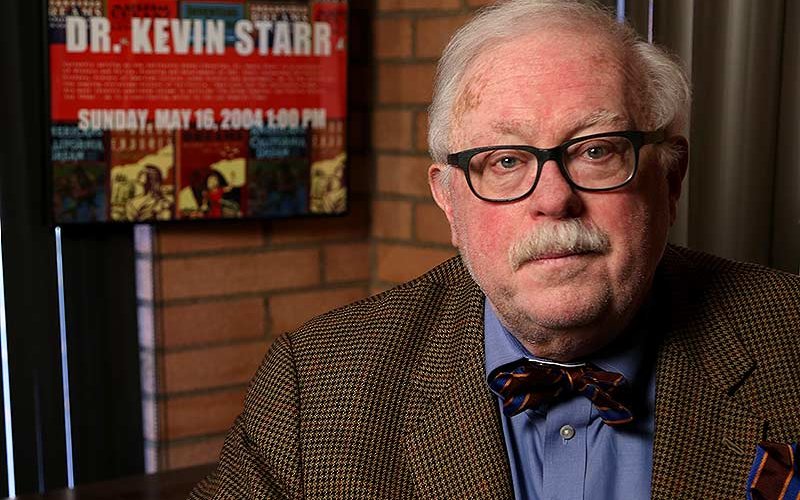
Cal State Fullerton students taking courses in American studies, history and the honors program often delve into the writings of Kevin Starr, the late California historian and former state librarian.
“During any given term, there are probably four or more classes throughout the University assigning Kevin’s work,” said Jason Sexton, honors program lecturer and editor of Boom California. “He’s a major literary figure in understanding the history of California.”
Sexton is leading a new research project, along with USC professor of history William F. Deverell, that will bring together 30 historians, social scientists and theologians for a two-year investigation of Starr’s eight-volume “Americans and the California Dream” series.
The project — “The California Dream in Interdisciplinary Perspective: Revisiting Major Themes in Kevin Starr’s California” — will explore 10 themes in Starr’s writings: myth, creation, anthropology, spirituality, sin, hope, redemption, ecclesiology, transformation and eschatology.
“The California Dream series is the most ambitious literary account of California that’s ever been given and probably ever will be given by one single author,” said Sexton. “Kevin’s passing is, in a sense, the end of an era of that kind of chronicling of California.”
Starr, who died Jan. 14, was a fourth-generation San Franciscan who earned his doctorate in American literature from Harvard University. He served as a speechwriter, city librarian, professor and columnist before being appointed to the position of California’s state librarian from 1994 to 2004. For his contributions as a scholar and historian, President George W. Bush awarded him the National Humanities Medal in 2006.
“Very few people have read all of Kevin Starr,” said Sexton, who interviewed Starr in late 2016 for Boom California. “There hasn’t been a robust treatment of his work, so it’s very important to turn our hands to it.
“I think Kevin would have appreciated that we’re not just excavating his work, but taking the themes and bringing them into conversation with our various disciplines and other concerns in California today.”
The research, slated to be published as an open access book, is supported through a two-year grant from Fieldstead and Co. and a CSUF Research, Scholarship and Creative Activity grant.
Sexton said the project comes at a critical time in the nation’s history, “when we’re really pressed to define what American values are and what California values are.
“I hope the research we produce will provide some tools for reckoning with California, its 40 million residents and others around the world who count it such a special place.”